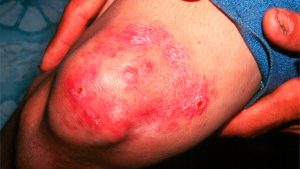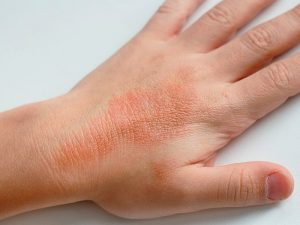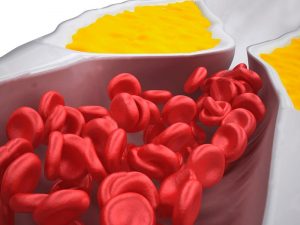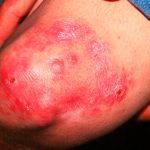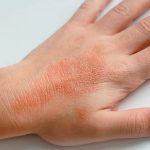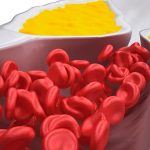What is Orthorexia?
Orthorexia nervosa is a relatively newly recognized eating disorder. Coined in 1988 by Dr. Steven Bratman, MD, it is defined as an “obsession with proper or ‘healthful’ eating”. Those diagnosed with this disorder take their healthy diet to such an extreme that they can damage their bodies with practices that are actually quite unhealthy. Unlike anorexia nervosa, it is not about body image but about being “pure”, According to Dr. Bratman, “…those with orthorexia constantly struggle against feelings of being unclean or polluted by what they have eaten, no matter how carefully they monitor their diet.” This eating disorder is not recognized formally in the Diagnostic and Statistical Manual and therefore makes diagnosing patients or estimating how many people are affected difficult. Specialists have yet to determine if this illness is a standalone eating disorder (such as anorexia) or a form of obsessive compulsive disorder. Those with this condition have often also been diagnosed with obsessive compulsive disorder. Because this illness is not officially recognized in the medical world, even if you display symptoms your doctor will not give you an official diagnosis.
Symptoms
- Compulsive checking of ingredient lists and nutrition labels.
- Increased health concerns about ingredients.
- Cutting out an increasing amount of food groups (sugar, carbs, dairy, meat etc)
- Inability to eat anything but a small group of foods deemed “healthy” or “pure”.
- Unusual interest in the healthiness of what others are eating.
- Spending hours a day thinking about what food may be served at upcoming events.
- Show high levels of distress when “safe” or “healthy” foods aren’t available.
- Obsessive following of food and healthy food lifestyle blogs on social media.
- Possible body image concerns.
Orthorexia Causes
While this condition is not the same as anorexia, the root cause of eating disorders can be the same.
- Psychological: Perfectionism, obsessive behaviors and anxiety are all linked to eating disorders. People with these illnesses have an obsession with control and find it through controlling what they eat.
- Biological: Studies have shown that people with first-degree relatives that have an eating disorder are at a higher risk of developing one as well.
- Social: Societal pressure to look thin or follow eating trends can impact people psychologically. There is such a stigma to being overweight that people get bullied and teased for their appearances, which 60 per cent of people with eating disorders said contributed to their illness.
Orthorexia Test
Dr. Bratman created a self-test to determine whether someone is simply a healthy-diet enthusiast or if they have/are developing this disorder. If you answer yes to any of the following situations you could be at risk:
- I spend so much of my life thinking about, choosing and preparing healthy food that it interferes with other dimensions of my life, such as love, creativity, family, friendship, work and school.
- When I eat any food I regard to be unhealthy, I feel anxious, guilty, impure, unclean and/or defiled; even to be near such foods disturbs me, and I feel judgmental of others who eat such foods.
- My personal sense of peace, happiness, joy, safety and self-esteem is excessively dependent on the purity and rightness of what I eat.
- Sometimes I would like to relax my self-imposed “good food” rules for a special occasion, such as a wedding or a meal with family or friends, but I find that I cannot. (Note: If you have a medical condition in which it is unsafe for you to make ANY exception to your diet, then this item does not apply.)
- Over time, I have steadily eliminated more foods and expanded my list of food rules in an attempt to maintain or enhance health benefits; sometimes, I may take an existing food theory and add to it with beliefs of my own.
- Following my theory of healthy eating has caused me to lose more weight than most people would say is good for me, or has caused other signs of malnutrition such as hair loss, loss of menstruation or skin problems.
Orthorexia and Exercise Addiction
Because this disorder is a preoccupation with a perceived healthy diet, it often goes hand in hand with exercise addiction. Studies have shown that individuals with this illness often develop exercise disorders based on the need to follow strict regimens in order to improve their overall health. People with excessive exercise issues exhibit signs such as exercising when sick, avoiding social events in order to exercise and adhering to an obsessive workout regimen. Those who are suffering from excessive exercise disorder should seek professional help from an exercise psychologist to help develop coping techniques. It is highly recommended they take a break from exercise for a period of time.
Orthorexia Treatment
Eating disorders are mental disorders and therefore it is imperative that once diagnosed, individuals seek the help of a psychologist who specializes in this field. Orthorexia recovery can require a team of specialists, including a nutritionist, therapist, physician and possibly a cardiologist. Therapy can help patients identify and resolve potential underlying issues and behaviors that could be contributing to the eating disorder.
How to Recover from Orthorexia
Dealing with eating disorders is a process. The goal is to focus on the long-term and changing an individual’s relationship with food. A therapist also aims to help patients strengthen emotionally, raise self-esteem and create tactics so that they feel they are more in control. Each treatment plan is unique but can focus on:
- Education about the disorder in order to encourage
- Nutritional guidance.
- Strategies for coping with stress, panic and unhappiness.
- Learning how to manage obsessive compulsive thoughts and behaviors.
- Self-worth and body image healing.
As with any illness or disorder, it is never advised to self-treat. If you or a loved one are exhibiting symptoms associated with this condition, seek help from a qualified professional.


